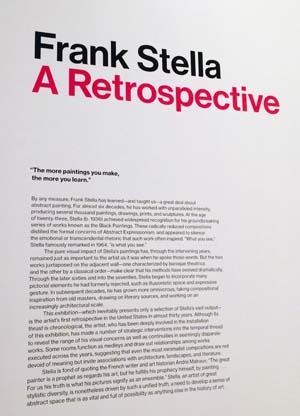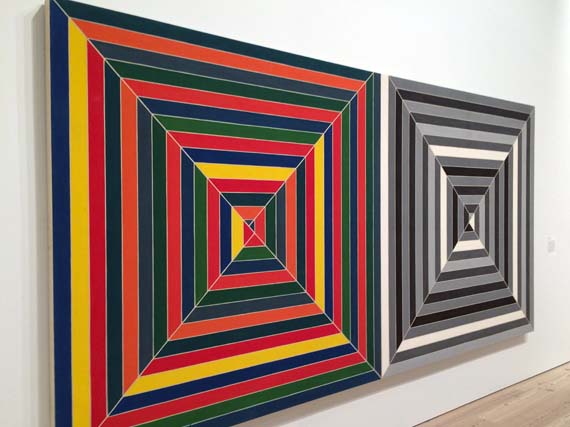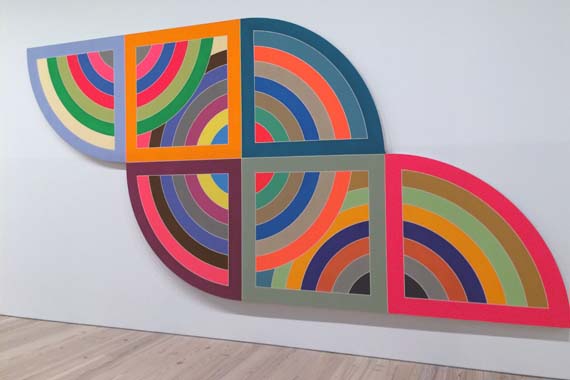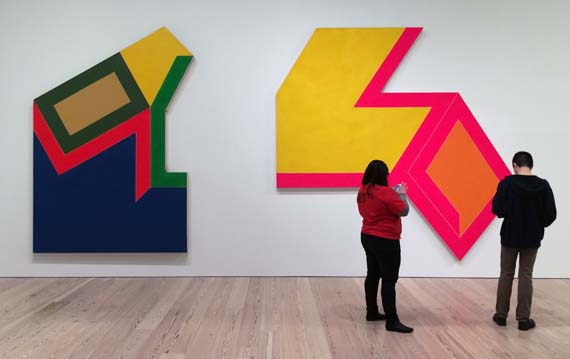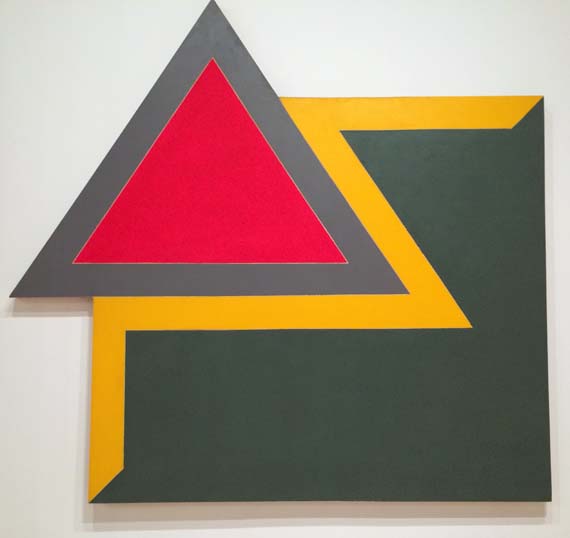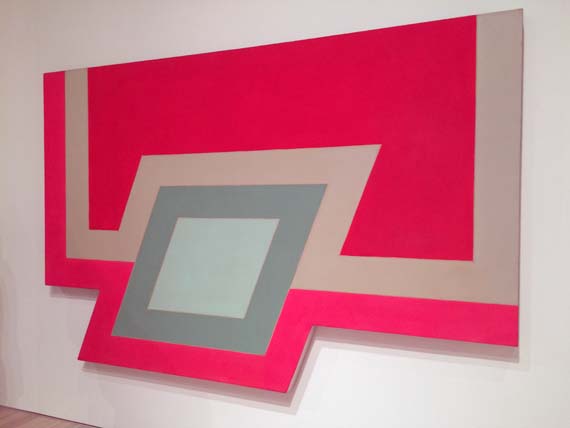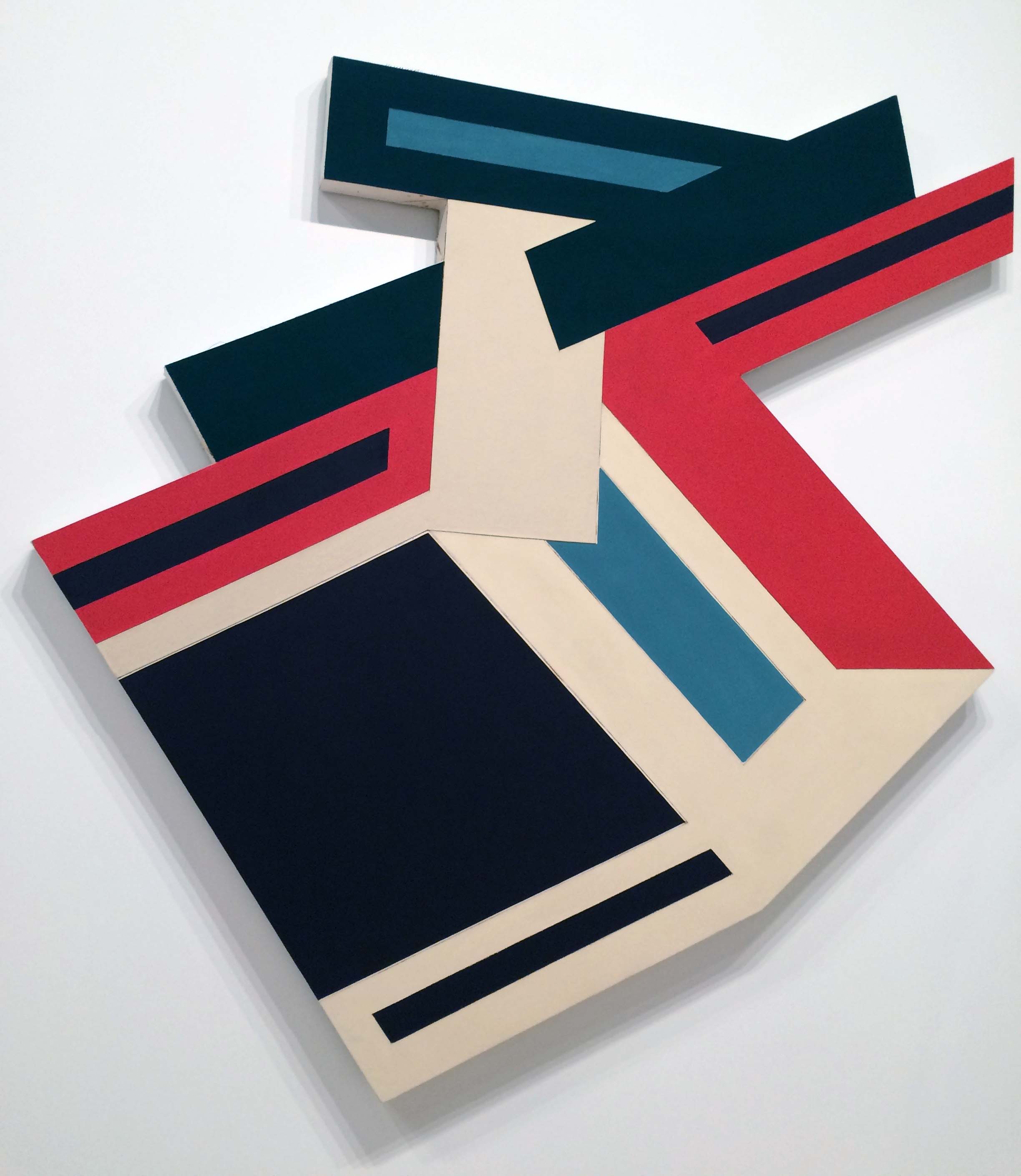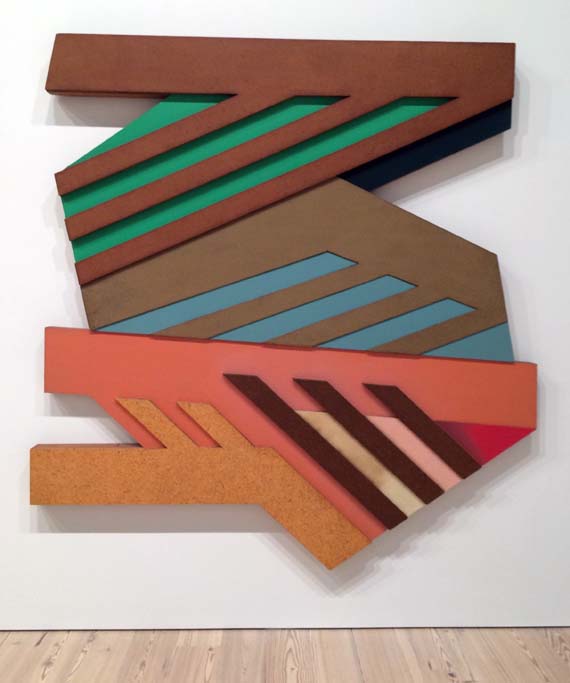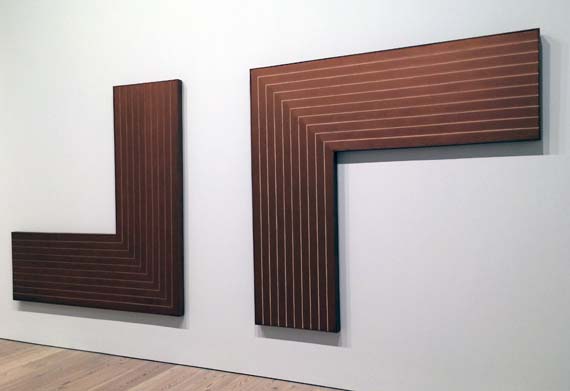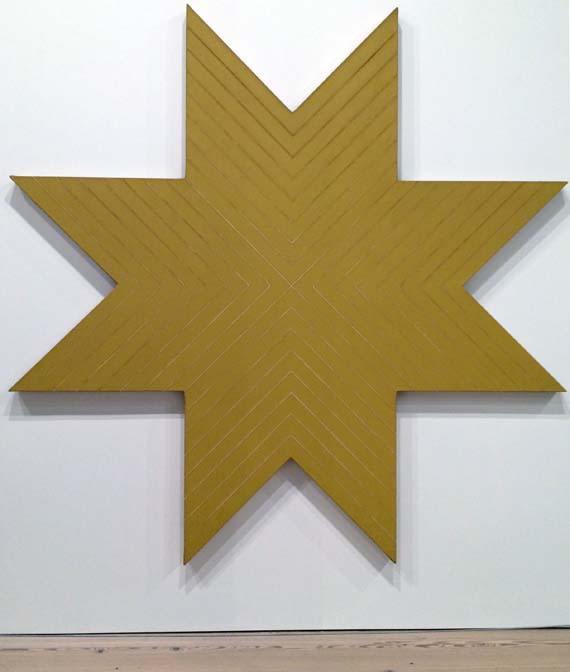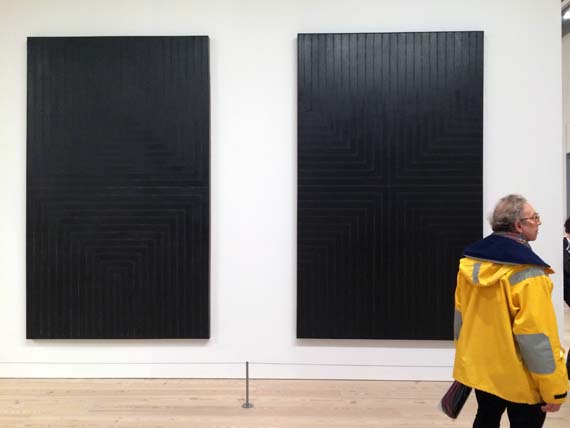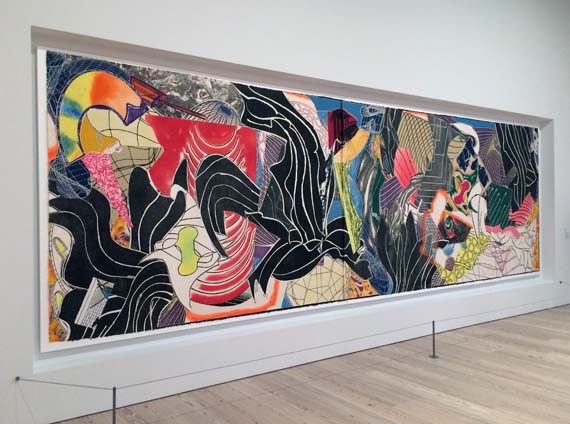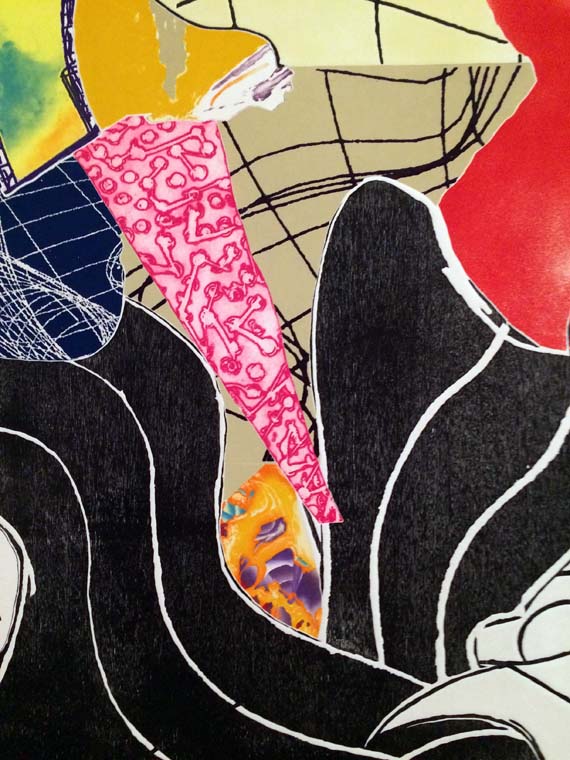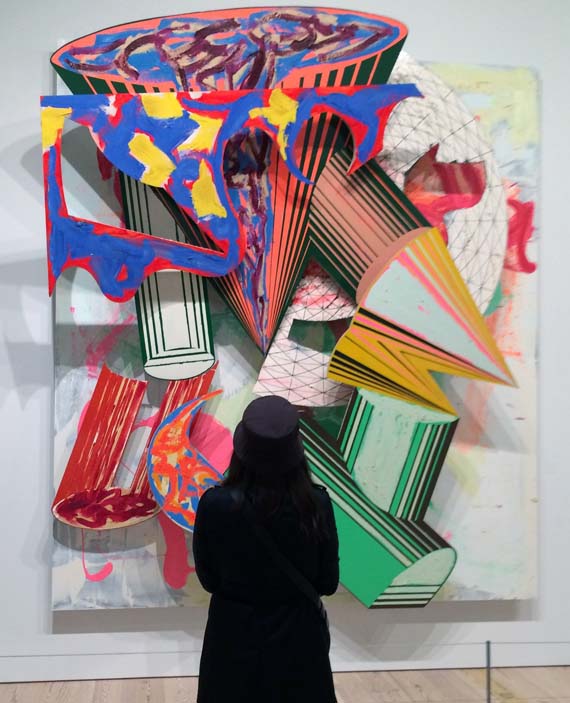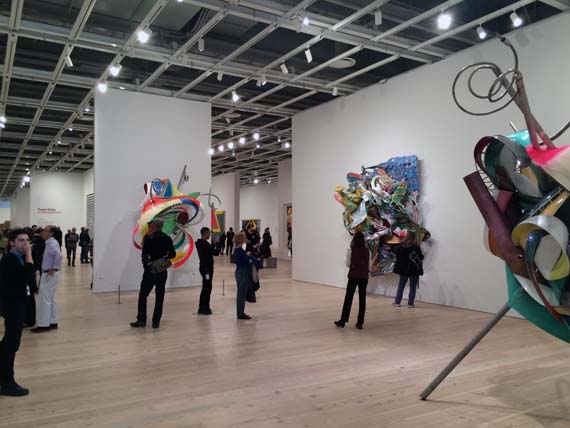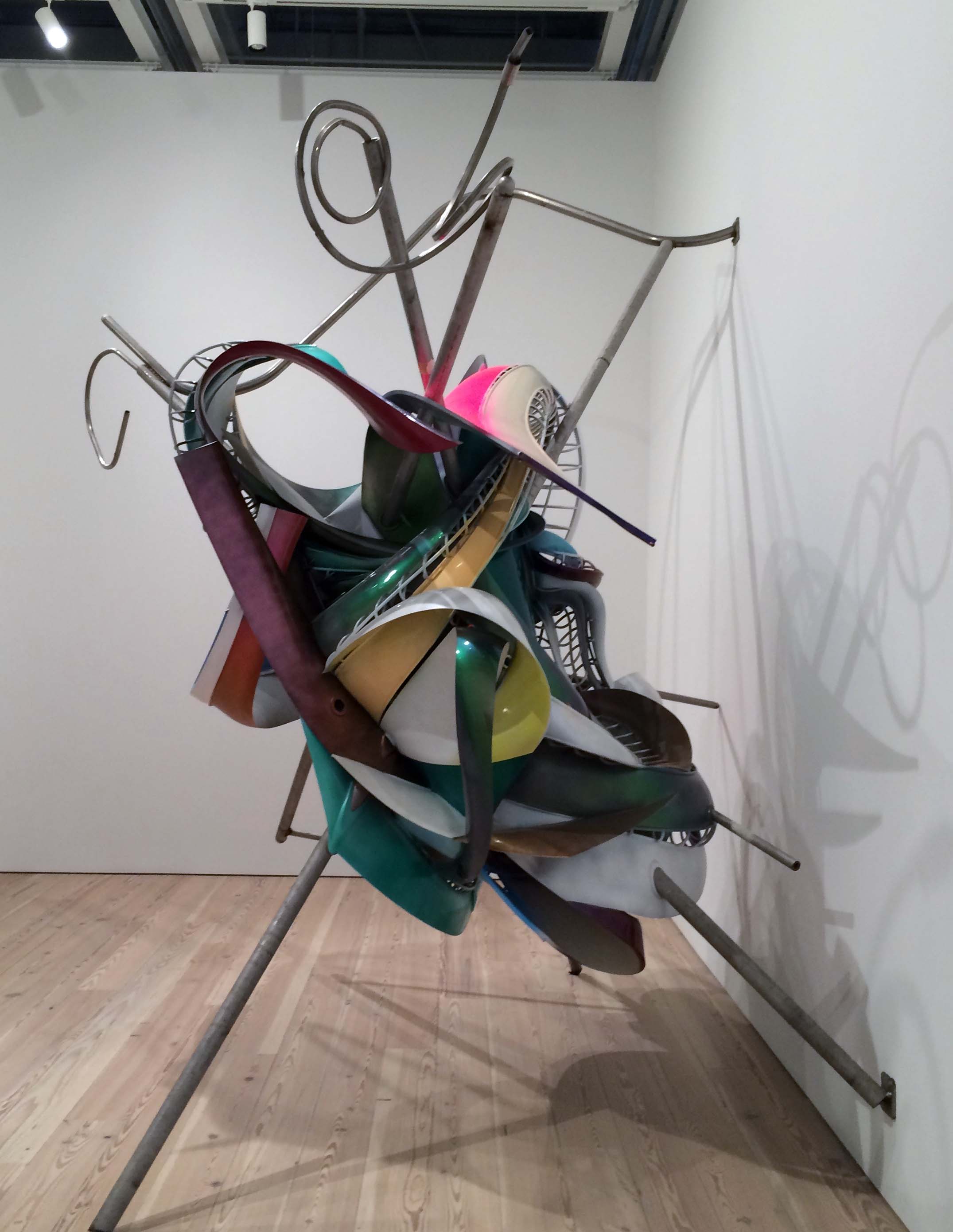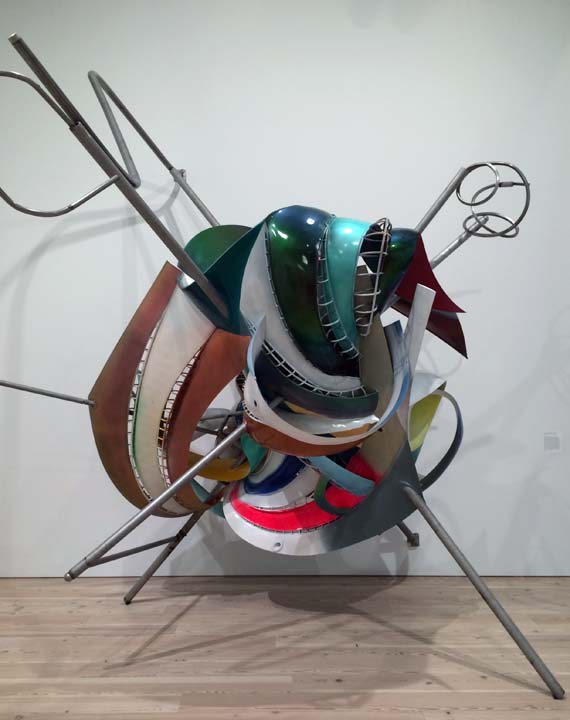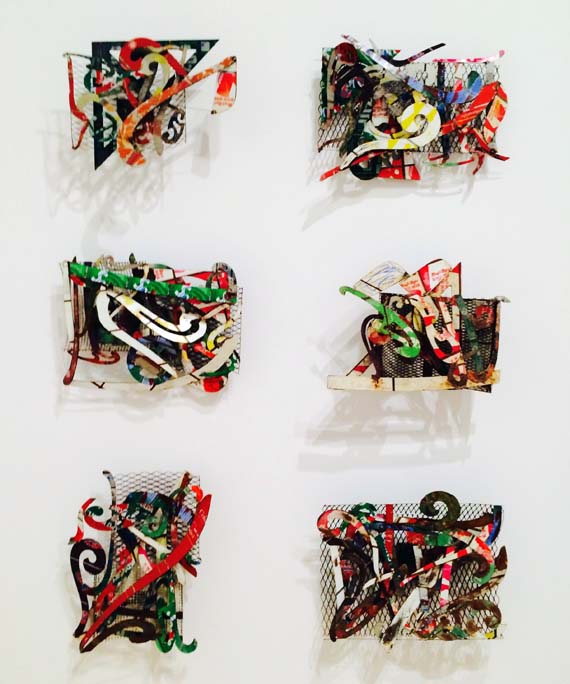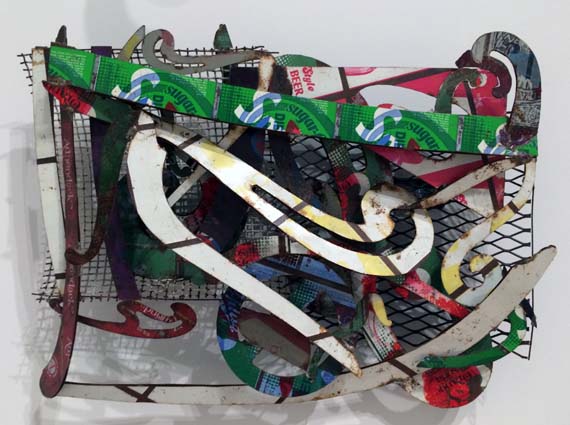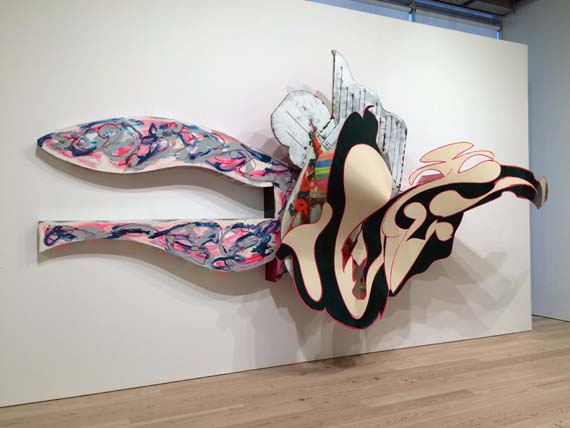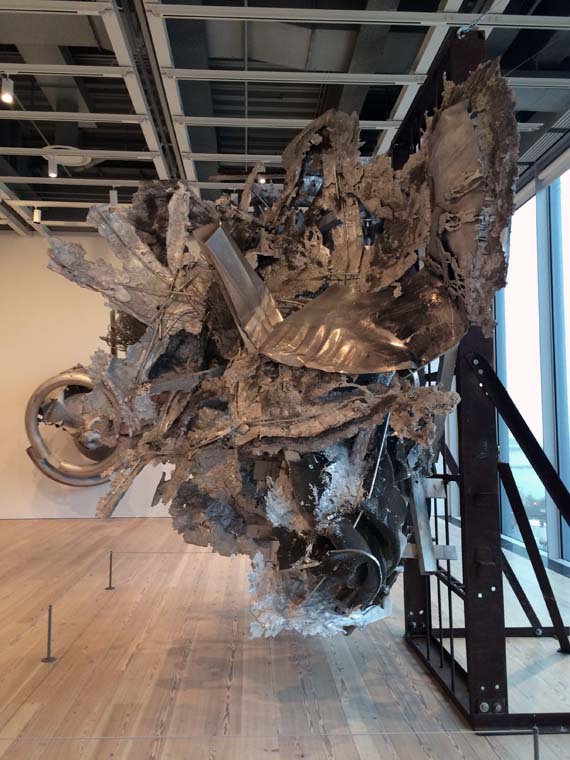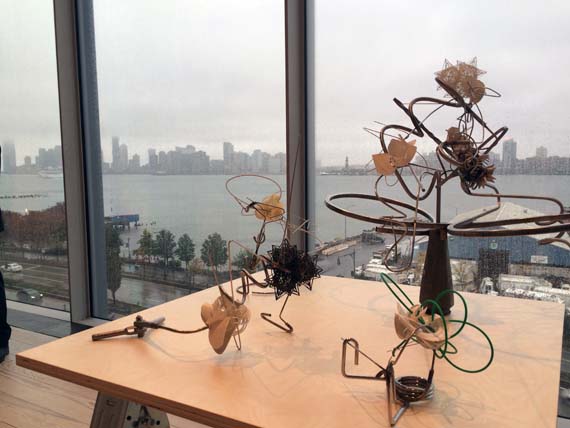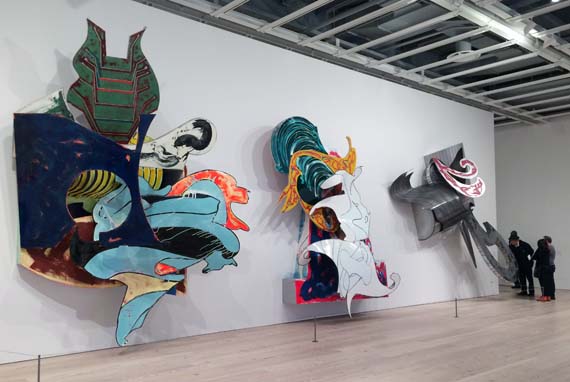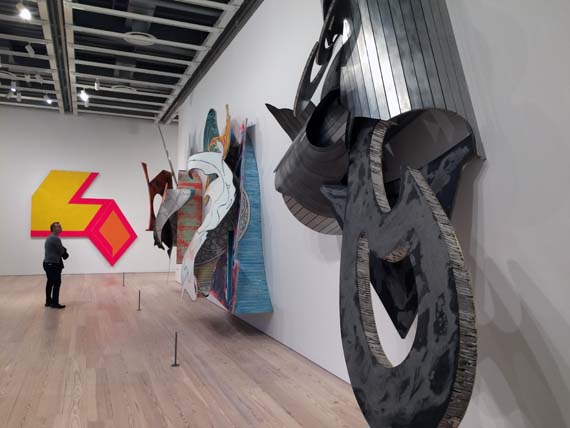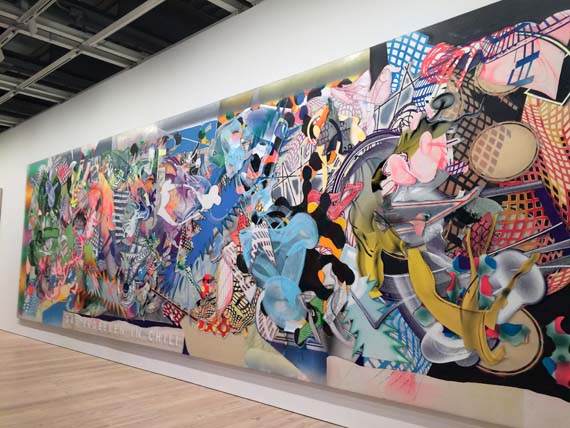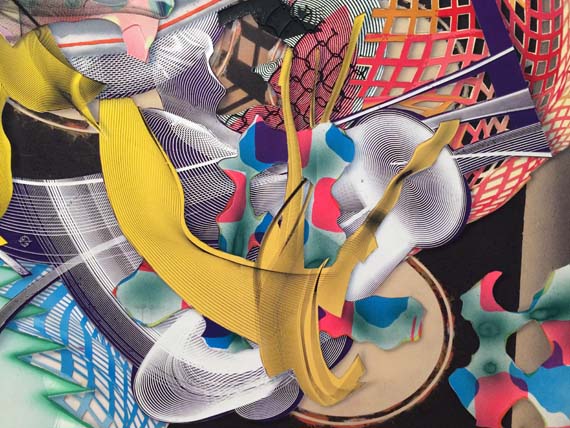FRANK STELLA'S WHITNEY RETROSPECTIVE BRINGS THE ARTIST'S IMPORTANCE INTO FOCUS
"I don't like to say I have given my life to art. I prefer to say art has given me my life."
I’m an artist not a critic, so this is not so much a review as it is a confession. I never “got” Frank Stella. His work always eluded me. Much of what I had seen was early work (the black paintings) in museums and his massive 80s wall sculptures in corporate lobbies. By definition, Stella is an abstract expressionist, but this new retrospective to use a cliché, paints a more complete picture of his importance in 20th century art. Stella has always been important. His art work was recognized for its innovations early on and in 1959 at the age of 23 he was included in Sixteen Americans at the MoMA. So, I’m not saying that he’s become more important but to me this exhibit, the first major one in NYC in three decades, really shows the full range of work and influence. I guess that's what a major NY retrospective does. The 5th floor of the new Whitney Museum, which just reopened in its new Meatpacking District location, has 18,000 square feet of select Stella.
I just came back from an early preview and I’m still buzzing with the thrill. The work is dynamic on its own, but it is dynamically installed as well, creating somewhat of a widescreen cinematic experience as you walk from gallery to gallery. Some wall sculptures are really enormous, as deep as they are tall and wide. The materials, color and scale change are all exciting to witness together. One of the most surpring installations has a dozen or more small scale models for scuplture –sitting in the open on sawhorse tables– that let's you see how he “draws” in 3D before he blows them up. He’s still not my favorite artist or even in my top 10, but I understand and appreciate how he works much more now. Have a look-see and if and if you likey and find yourself in NYC this winter, go see it in person. Stella's most famous quote should guide you...
"What you see is what you see."
Frank Stella: A Retrospective opens this Friday October 30 and runs through February 7, 2016 at the Whitney Museum of American Art.
